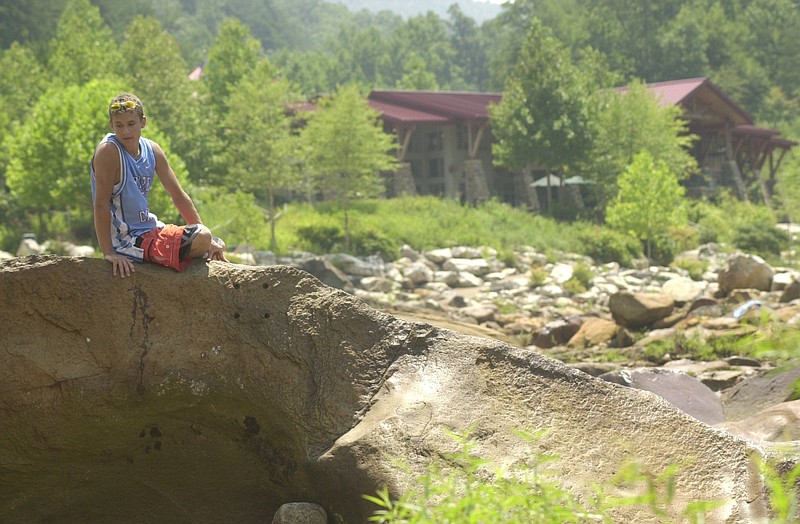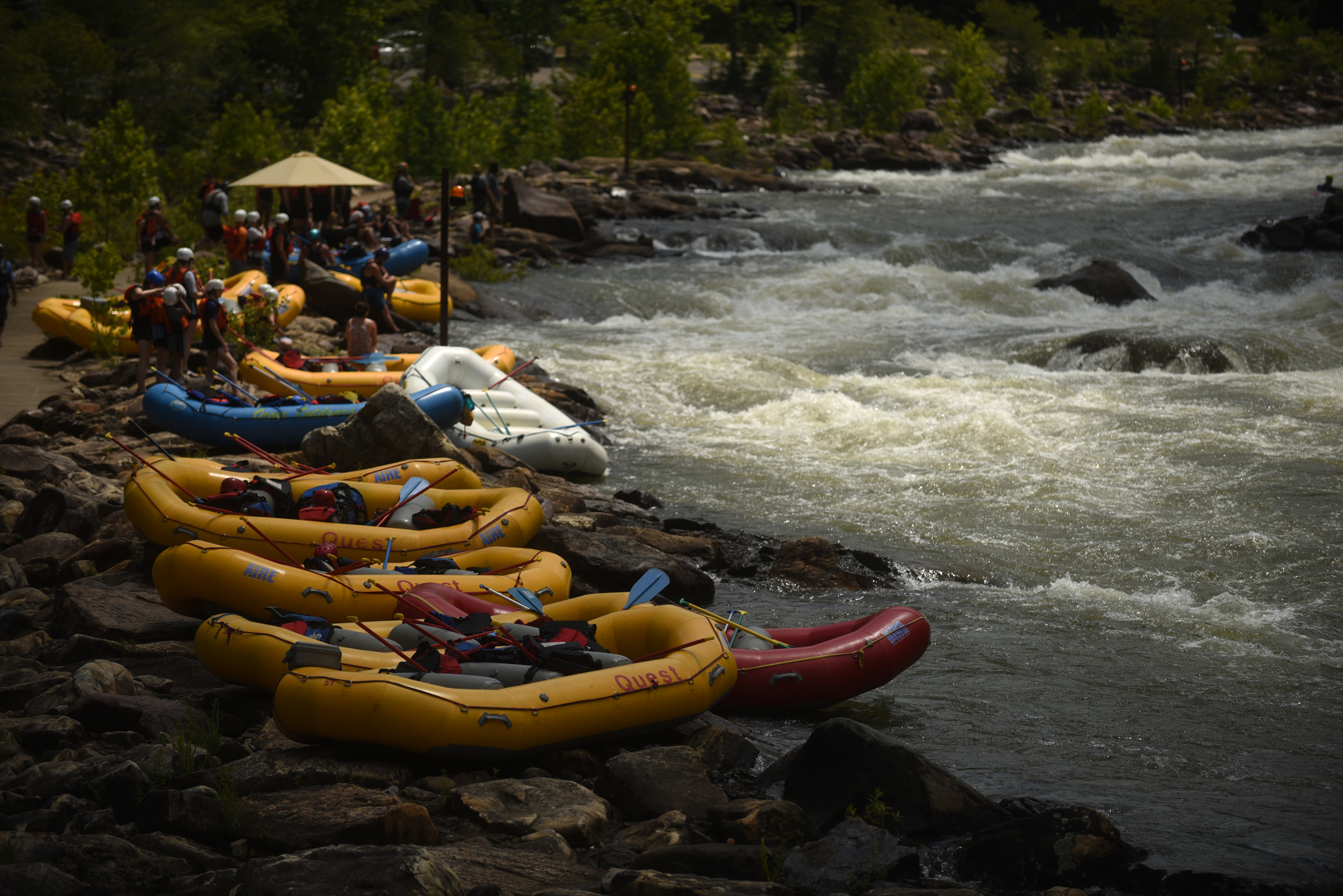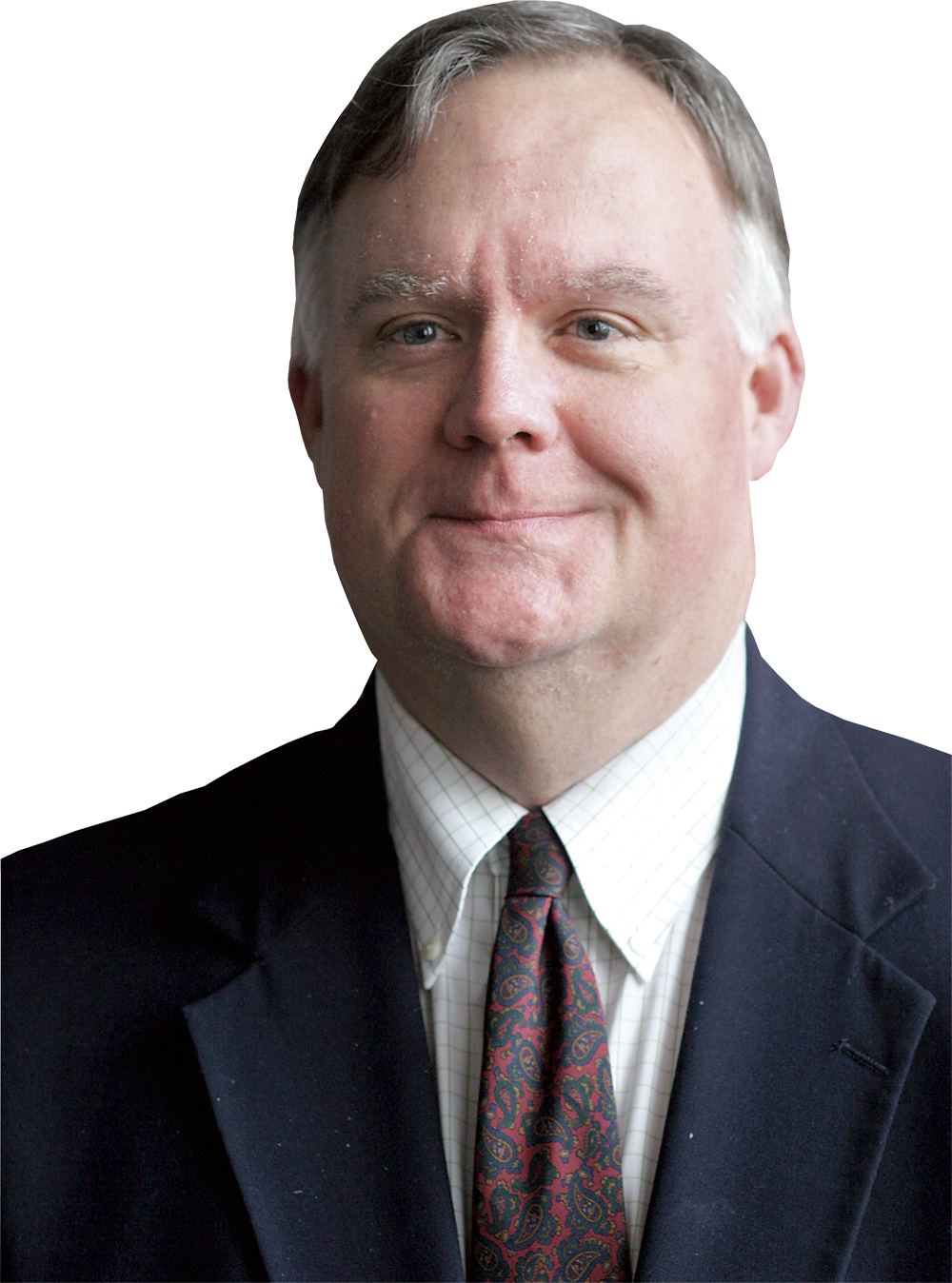Cliff Betts was no more than 10 years old the summer a Camp Ocoee counselor decided to take him and a few of his fellow campers on a hike up Chilhowee Mountain.
"The counselors got us off the main road about halfway up," the 85-year-old Betts recalled last week. "We wound up having to walk over the most horrific rock pile I'd ever seen in my life. It was filled with snakes and critters. It was more than scary. It was dangerous."
But when Betts was asked to help design the whitewater course for the 1996 Olympic Games on the Ocoee, that rock pile suddenly found a new home. While sketching the site one day, he remembered that pile and how much the placement of those rocks - if they were still there - could improve the course on the Upper Ocoee.
"I was trying to think of a way to narrow the river down, to make the water faster," he said. "It would make the course more difficult to paddle for kayakers, make it more interesting. Fortunately, a man with the U.S. Forest Service remembered where the rocks were, and we were able to get them moved. We used them to construct levees in the river and increase water velocity."
Betts was not the only one working on the course's design. John Anderson and Rick McLaughlin also were hired, as well as others. And it was far from a simple task to shrink a river bed from 200 feet across to 70 feet using boulders that weighed as much as seven tons apiece.
"Those rocks would just about tip the trackhoes over," said local architect Trey Wheeler, who made the Olympic course his thesis project at Auburn. "But it ended up just the way everyone wanted it to. It took an unusual group of people with an unusual set of skills to pull it off, but they did. And Cliff was critically important to the project."
That project was so successful that 20 years after the Games ended, Olympic gold medal kayaker Joe Jacobi - who helped with event planning for the Ocoee site - said of the venue: "The Olympic athletes who were there still talk about that course. It's still the only Olympic whitewater competition to be held on a natural river. You have kids today who've never competed on a real river. In my opinion, those Olympics (for whitewater) will never be topped."
A disclaimer is in order here. Clifford Aull Betts Jr. was once my father-in-law. Other than my own late father, he's the smartest man I've ever known and without question the best example of a Renaissance Man the Scenic City will ever know.
After all, this is a guy who can discuss, in painstaking detail, everything from the mating habits of honey bees to how best to use grow lights for plants stored in a basement to single malt scotch to the dressing of quail and dove. He was finding alternative uses for discarded Christmas trees long before recycling was popular.
Betts was an all-world poacher in doubles tennis in his younger days, as well as a serious student of golden retriever bloodlines, especially as it pertained to his late, great hunting companion, Balfour. His musical tastes run from the William Tell Overture to Abba. He has rafted the Colorado River, hit the ski slopes in Aspen and for decades perfectly rang the bells at St. Paul's Episcopal Church on Christmas Eve. He can discuss the British Empire and the Empire State Building with equal aplomb.
He's an expert on duck hunting, boxwoods and impatiens (or as Betts might refer to a certain variety: impatiens walleriana and buxus sempervirens), the Walnut Street Bridge - which his father helped build and his bride of 60 years, Sally, helped save from the wrecking ball - the wit and wisdom of Winston Churchill, "The Hobbit", how to control a leaf fire, at least 45 species of birds, painting still-lifes and landscapes in oil and Southern literature.
(And I'm only cutting the list there due to space limitations).
Most of all, best of all, he's tried to pass all that knowledge on to anyone willing to listen and learn - especially his three bright and beautiful daughters and their families. Some of it has even penetrated my thick skull. More of it should have.
But the general public has been enriched by his professional accomplishments as a landscape architect and civil engineer far beyond the Ocoee. There's the four years of work that the late Jim Franklin and Betts put in on Fall Creek Falls, work that won them a national design award. There's the original Miller Plaza project he also did with Franklin. And an irrigation system at the Honors Course that can store four million gallons of water. The National Cemetery. Numerous projects at Lake Winnepesaukah. Veterans Bridge. The giant hillside garden at Chattanooga Golf & Country Club. The Episcopal Church's Grace Point youth camp near Kingston, Tenn. Too many smaller jobs to mention.
But the Ocoee was as big as any of them to Betts, who graduated from McCallie in 1948, earned his bachelor's degree from Georgia Tech and a masters from Wisconsin and served in the Air Force.
"I'm still very proud of that work," he said of the Ocoee project. "The event went off beautifully. Everybody had a great time."
A lot happens in 20 years. Cliff and Sally are now both battling serious illnesses. The Ocoee runs but 34 days a year for outdoors enthusiasts, with this past Saturday its last day of 2016.
Like so many folks in their 80s, those born on the back side of the Greatest Generation, they have both made a profound difference during their lives.
But it might be the way Cliff has gone about making those differences that we would all most want to copy.
"We've all been involved in projects that we were afraid weren't working out," Wheeler said. "But when you saw Cliff on a project, you always got the sense that everything was going to work out just fine."
Contact Mark Wiedmer at mwiedmer@timesfreepress.com.


